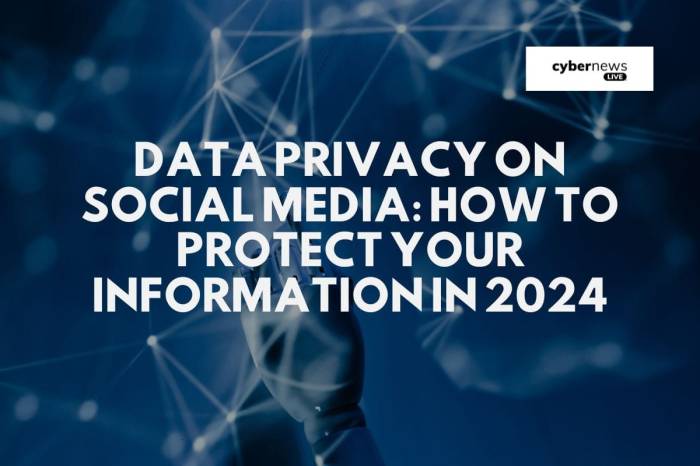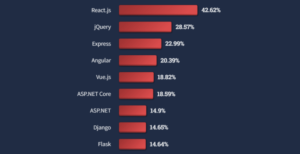
Data privacy in social networking is a crucial issue that affects everyone using these platforms. With the rise of social media, personal information is often shared more freely than ever, making it essential to understand the implications of this behavior. From potential data breaches to misuse of personal information, the stakes are high, and being informed is the first step towards protecting oneself.
The importance of data privacy cannot be overstated, as it encompasses the strategies that individuals can employ to safeguard their information while navigating online social circles. Legal regulations also play a significant role in ensuring that companies uphold certain standards, making it vital to stay informed about your rights and responsibilities in the digital space.
Data Privacy Fundamentals in Social Networking
Data privacy in social networking is a critical aspect that shapes how individuals interact online. As users engage with various platforms, they often share personal information that can be exploited if not adequately protected. Understanding the fundamentals of data privacy helps ensure a safer social networking experience and fosters trust between users and platforms.
Importance of Data Privacy in Social Networking Platforms
The significance of data privacy cannot be overstated, as it directly impacts user trust and platform integrity. When users feel secure about their personal information, they are more likely to engage actively on social media. The following points illustrate the importance of data privacy:
-
User trust is essential for the sustainability of social platforms.
When users believe that their data is safe, they are more inclined to share their thoughts, which enhances user engagement.
- Protecting sensitive information prevents identity theft and fraud. Social networking sites often store personal details that, if breached, can lead to severe consequences for users.
- Data privacy compliance is necessary to avoid legal implications. Non-compliance with data protection regulations can result in hefty fines and reputational damage for companies.
Common Data Privacy Risks Associated with Using Social Media
Navigating social networking platforms can expose users to various privacy risks. It is essential to be aware of these risks to mitigate potential threats. Some of the most common risks include:
-
Data breaches are a significant threat to user privacy.
High-profile incidents, such as the Facebook-Cambridge Analytica scandal, highlighted how data can be misused without user consent.
- Inadequate privacy settings can leave users vulnerable to unwanted attention and harassment. Many users are unaware of the extent to which their profiles are public by default.
- Phishing scams frequently target social media users, tricking them into providing sensitive information. This occurs when malicious actors impersonate legitimate accounts.
Legal Regulations Governing Data Privacy on Social Networking Sites
Legal frameworks play a vital role in regulating data privacy for social media platforms. These regulations ensure that user data is collected, stored, and used responsibly. Key regulations include:
-
The General Data Protection Regulation (GDPR) is a comprehensive data protection law in the EU that sets stringent requirements for data handling.
It gives users more control over their personal information and imposes significant fines for non-compliance.
- The California Consumer Privacy Act (CCPA) provides California residents with specific rights regarding their personal data, including the right to access and delete their information.
- Children’s Online Privacy Protection Act (COPPA) ensures that websites and services directed towards children under 13 obtain parental consent before collecting personal data.
User Awareness and Data Protection Strategies

As social networking continues to integrate seamlessly into our daily lives, maintaining data privacy has become a pressing concern. Users must equip themselves with knowledge and tools to protect their personal information from potential breaches. Effective strategies that enhance data privacy on social networks are crucial in today’s digital landscape.Recognizing the importance of data protection, users can adopt specific practices to safeguard their information while engaging on social platforms.
One key area to focus on is the use of privacy settings, which serve as the first line of defense against unauthorized access to personal data. Additionally, understanding how to spot potential privacy breaches can empower users to act quickly and mitigate risks.
Effective Strategies for Enhancing Data Privacy
Implementing robust data protection strategies requires a proactive approach. Here are several effective methods users can adopt to enhance their data privacy on social networks:
- Regularly Review Privacy Settings: Users should frequently check the privacy settings on their social media accounts. Each platform offers various options to control who can see personal information, posts, and friend lists. Customizing these settings helps limit exposure to unwanted audiences.
- Be Cautious with Friend Requests: Accepting requests from unknown individuals can lead to privacy risks. Users should only connect with people they know personally to minimize the chance of data exploitation.
- Limit Personal Information Sharing: It’s imperative to think twice before sharing sensitive information, such as phone numbers, addresses, or financial details. Keeping personal data minimal reduces the chances of it being misused.
- Utilize Two-Factor Authentication: Enabling two-factor authentication adds an extra layer of security. It requires a secondary verification step, making unauthorized access significantly more challenging for potential intruders.
- Be Aware of Third-Party Apps: Many social networks allow third-party applications to connect. Users should regularly review and remove apps that are no longer needed or seem suspicious.
Recognizing and Avoiding Privacy Breaches
Understanding how to identify privacy breaches is crucial in maintaining data security on social platforms. Users should remain vigilant and informed about signs that may indicate potential risks:
- Monitor Account Activity: Regularly checking account activity for unfamiliar logins or changes can help catch unauthorized access early. Many social platforms provide logs of recent logins and devices used.
- Be Cautious with Suspicious Links: Phishing attacks often occur through fraudulent links in messages or posts. Users should avoid clicking on unverified links or providing personal information on unknown sites.
- Recognize Red Flags in Communications: Emails or messages that ask for sensitive information or prompt urgent action can be a sign of a phishing attempt. Always verify the source before responding.
The Role of Privacy Settings in Protecting User Data
Privacy settings are central to protecting user data on social networking sites. These settings allow users to control their online presence and who has access to their information:
- Tailored Visibility Options: Users can choose who sees their posts, from public to friends only, or even custom lists. Adjusting these options can significantly enhance privacy.
- Profile Information Management: Social media platforms allow users to manage the visibility of personal details such as birthdates, locations, and workplaces. Reducing this visibility can protect against identity theft.
- Control Over Tagging and Mentions: Many platforms enable users to control who can tag them in posts or comments. By adjusting these settings, users can prevent unwanted associations and maintain control over their digital footprint.
The Interplay Between Data Privacy and Marketing
The relationship between data privacy and marketing strategies on social networks is increasingly complex. As users become more aware of their data rights, marketers must adapt their strategies to balance effective promotional activities with compliance to privacy laws. This section explores the ways data privacy considerations shape search engine marketing, internet security, site promotion, and the influence on social bookmarking and video marketing.
Impact of Data Privacy on Search Engine Marketing
Data privacy regulations significantly impact how brands strategize their search engine marketing (SEM) efforts. Marketers need to navigate a landscape where user consent for data collection has become paramount, influencing the effectiveness of targeted advertising.
User Consent and Personalization
With stringent data privacy laws like GDPR and CCPA, obtaining user consent for tracking is crucial. Marketers often need to rely on aggregated data rather than personalized insights, which may limit the effectiveness of ad targeting.
Ad Spend Efficiency
Data privacy impacts the efficiency of ad spend. Brands may need to allocate resources to compliance measures rather than optimizing campaigns, which can affect overall ROI.
Trust and Brand Loyalty
Transparency about data usage fosters trust. Brands that openly communicate their data policies are more likely to retain customers, thereby enhancing brand loyalty and potentially improving conversion rates.
“Data privacy isn’t just a legal requirement; it’s a cornerstone of consumer trust.”
Implications of Data Privacy for Internet Security and Site Promotion
Data privacy concerns are closely tied to internet security, creating both challenges and opportunities for site promotion. Marketers must ensure that their promotional methods do not compromise user data security.
Security Measures
Implementing robust security protocols is essential. This includes SSL certificates, strong encryption methods, and regular security audits to protect user information, which can enhance the site’s reputation and promote user engagement.
Content Marketing Strategies
Content marketing can be influenced by data privacy. Focused, informative content that addresses privacy issues can position a brand as a thought leader, improving visibility and trust.
Compliance as a Marketing Angle
Emphasizing compliance with data privacy laws in marketing materials can differentiate a brand in a competitive market. Demonstrating a commitment to protecting user data can enhance brand image and attract privacy-conscious customers.
Influence of Data Privacy Concerns on Social Bookmarking and Video Marketing
The rise of data privacy awareness has transformed how social bookmarking and video marketing are approached by brands. Understanding these shifts is essential for effective digital marketing strategies.
Social Bookmarking Practices
Privacy-focused users may be less likely to share content on platforms that do not prioritize data protection. Marketers must create valuable content that users are willing to bookmark and share while ensuring that privacy options are clear.
Video Marketing Engagement
The nature of video content can be impacted by privacy concerns. Brands are increasingly focusing on producing content that informs users about data privacy, thus fostering a sense of community and responsibility.
Platform Selection
Choosing platforms that safeguard user data can significantly influence marketing outcomes. Brands need to consider using platforms that prioritize user privacy, which can result in higher engagement and trust from the audience.In summary, the interplay between data privacy and marketing is intricate, requiring marketers to adapt their strategies to align with both promotional goals and the evolving landscape of user data protection.
Closure

In summary, understanding data privacy in social networking is not just about protecting personal information but also about being aware of how your data can influence marketing strategies and online interactions. By adopting effective privacy measures and staying informed about legal regulations, users can better navigate the digital landscape, ensuring a safer and more secure online experience.
Frequently Asked Questions
What are common risks of data privacy on social networks?
Common risks include data breaches, identity theft, and unauthorized access to personal information.
How can users enhance their data privacy?
Users can enhance their data privacy by adjusting privacy settings, using strong passwords, and being cautious about the information they share.
What legal regulations protect data privacy?
Legal regulations such as GDPR in Europe and CCPA in California set standards for data protection and privacy rights.
How does data privacy affect marketing strategies?
Data privacy impacts marketing strategies by limiting how companies can collect and use consumer data for targeted advertising.
Why should users care about data privacy?
Users should care about data privacy to protect their personal information from misuse and to maintain their security online.





